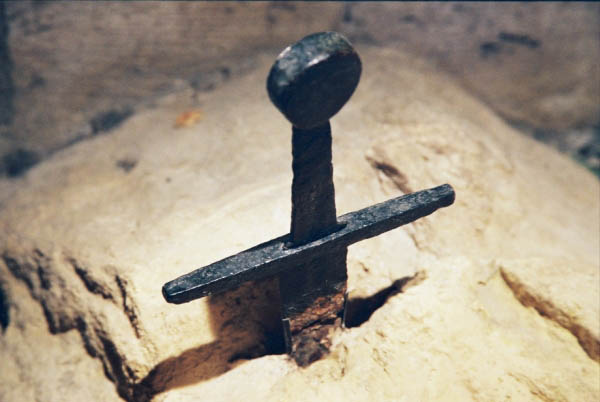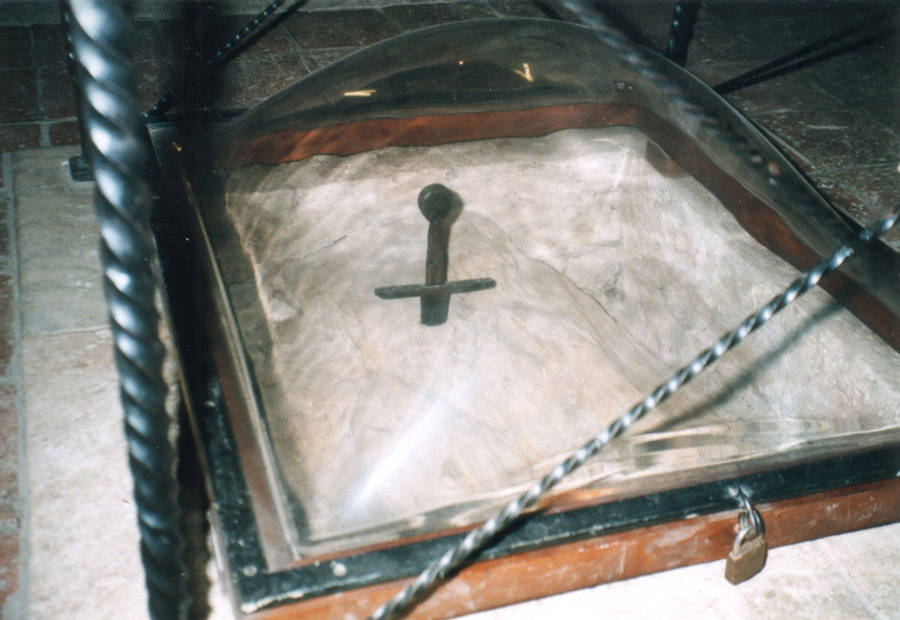The legend of the sword in the stone has captivated the imaginations of people for centuries, with the story of King Arthur pulling Excalibur from the rock becoming a beloved piece of folklore. However, what if there was an even more ancient and mysterious version of this tale, one that predates the Arthurian legends and is grounded in historical fact? In the outskirts of Siena, Italy, there exists a 900-year-old sword that has been embedded in solid rock, and its true owner may surprise you.
The Life of St. Galgano Guidotti

Born in 1148 to an illiterate feudal lord, Galgano Guidotti would go on to become a wealthy and skilled knight. However, Guidotti was also known for his arrogance, violence, and focus on worldly pleasures rather than spiritual matters. That all changed when he is said to have had visions of the Archangel Michael, the warrior saint, who urged him to give up his life of wealth and dedicate himself to God.
The Sword in the Stone

According to legend, during one of these visions, the Archangel Michael suggested that Guidotti should give up his life of wealth and dedicate his existence to God. Guidotti scoffed at the request, stating that the task would be as difficult as splitting a stone. To prove his point, the knight thrust his sword into a rock, and to his surprise, it cut through the stone like butter. Sometime later, while on horseback, Guidotti wandered to a hilltop and was so struck by the sight that he decided to plant a cross. However, without a cross or any wood handy, he unsheathed his sword and plunged it into a stone, where it has remained ever since.
The Montesiepi Chapel
After Guidotti’s death in 1185, Pope Lucius III declared him a saint, and the Montesiepi Chapel was built around the legendary “sword in the stone.” Throughout the centuries, many have tried to play King Arthur and extract the medieval sword, but all have failed. In fact, to prove a point, the mummified hands of an unfortunate thief who tried to steal the sword are on display at the chapel. It is said that this would-be robber was an assassin sent by the devil himself and was eaten by wolves who were friends of Guidotti.
The Authenticity of the Sword
Recent tests on the sword’s style and metal have found that it is consistent with the late 1100s to early 1200s, the same time period as the life of St. Galgano Guidotti. These tests have also provided radar analysis of a cavity beneath the stone, which is thought to be a burial recess, possibly containing the knight’s body. Additionally, the mummified hands have also been dated back to the 12th century.
While it’s impossible to verify the entire legend of the real sword in the stone, the evidence suggests that this tale is not simply a work of fiction, but rather a historical event that has been transformed into a beloved piece of folklore. The story of St. Galgano Guidotti and the sword he plunged into the stone serves as a reminder that sometimes the truth can be even more extraordinary than the legends that have been passed down through the ages.